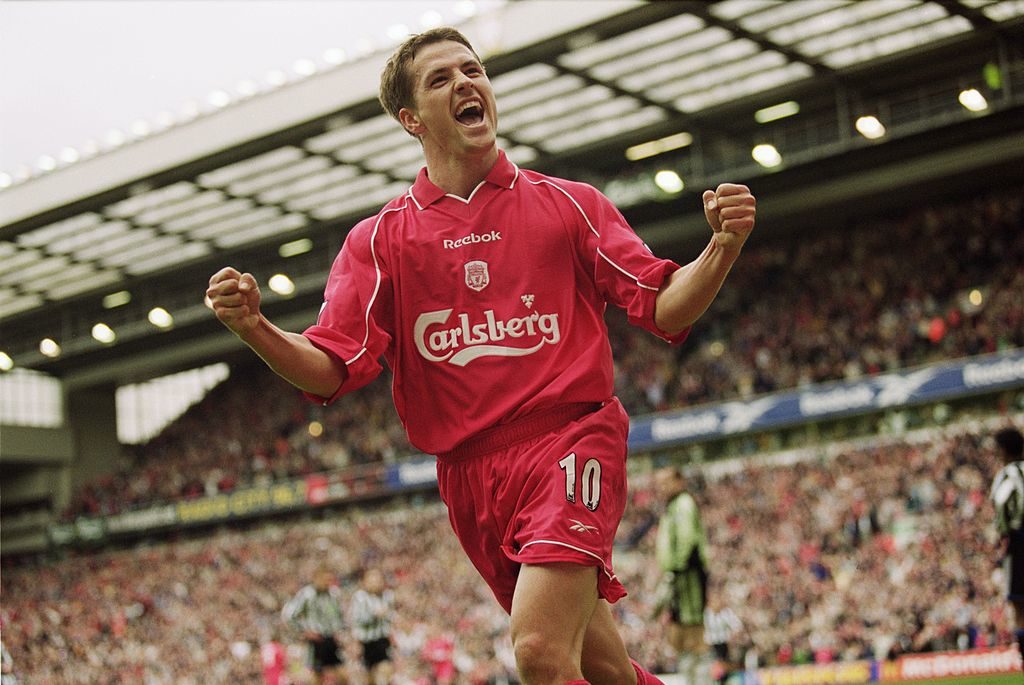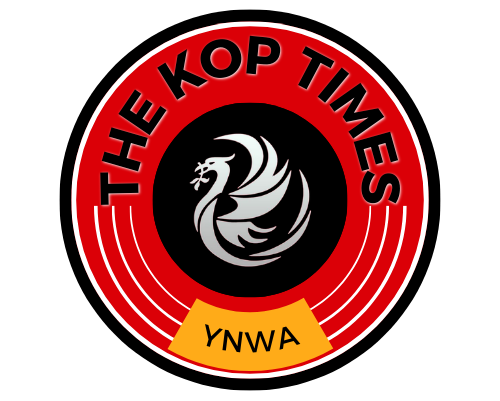
With over 200 officially recognised supporter clubs in about 50 countries, Liverpool FC is one of the most admired football clubs over the globe. Undoubtedly, Liverpool really has what to give to its fans – it has been a champion of England 18 times, and holds historical records for the best-performing English team in the European club tournaments as it has won six European Cups, three UEFA Cups, and four European Super Cups.
Fantastic players have come and gone through Anfield’s gates, and all of them somehow impacted the club’s history. Although some of the Kopites still do not forgive Michael Owen for his career decisions after leaving Liverpool, indisputably, he is among those who will always be remembered as one of the greatest players ever to march for the Reds. The Chester-born Owen’s relationship with Liverpool is described by his father as “love at first sight”. The striker joined Liverpool’s youth team at the age of 12, while his present for his 17th birthday was signing with Liverpool FC.
Michael’s senior debut was on 6 May 1997 in a match against Wimbledon, and the youngster didn’t really need more than 16 minutes to score a goal after being introduced from the bench, ultimately becoming the Premier League’s youngest ever goalscorer. Owen became The Reds’ first-choice striker in the 1997–98 season and his performance was truly extraordinary, proof of which are his recognitions – the Premier League Golden Boot and the PFA Young Player of the Year award. The Liverpool Echo described the striker as “Liverpool’s most precious performer and, quite simply, their saviour.”
He signed a £2.5 million-worth five-year contract with Liverpool during the season, and his deal for £10,000 per week made him the highest-paid teenager in the history of British football. Owen was declared to be the best of a generation of young players that included the likes of Paul Scholes, David Beckham and Robbie Fowler. For the next seven seasons, Owen scored 158 times in 297 games for Liverpool.
Being the team’s striking power, in season 2000-01, Michael helped The Merseyside Reds to achieve a historical success and win the treble of the League Cup, FA Cup and UEFA Cup. His performance that season was recognised with the European Player of the Year award, the 2001 Ballon d’Or award.
The experienced team of the educational betting platform – Bettingmetrics prepared a list with Michael Owen’s five greatest goals for Liverpool:
- Against Sheffield Wednesday in 1998: After his bright debut against Wimbledon, Owen continued to impress the football society. Although The Reds did not pick up all three points on 14 February 1998 against Sheffield Wednesday, Owen scored three goals, which made him the youngest ever player to score a Premier League hat trick. For his first goal, he performed an excellent finish with the outside of his foot. Then, while Sheffield Wednesday was leading 3-1 and there were less than twenty minutes until the end of the match, the 18-year-old Liverpool striker notched a goal after taking out the ball when Robbie Fowler hit the woodwork, and then he scored for a third time with another self-possessed finish from Paul Ince’s through ball.
- Against Newcastle in 1998: On 30 August 1998, it only took Owen 15 minutes to complete a hat trick against Newcastle. The third goal was the game’s outstanding moment, which can be described as a typical Owen goal, as the Liverpool striker caught the defender Laurent Charvet flatfooted before easily performing a chip kich over the rushing goalkeeper Shay Given. Owen’s treble quite deservedly took the headlines that day.
- Against Manchester United in 1998: In his first full season for Liverpool, Owen already proved his superstar status and won the prestigious double of the Golden Boot and the PFA Young Player of the Year awards. He celebrated the season by scoring the equalising goal at Old Trafford with a saucy finish over Peter Schmeichel.
- Against Arsenal in 2001: Oh, we still have goosebumps whenever that game comes across our minds! This match, indisputably one of the greatest turnarounds in FA Cup final history, was the second part of Liverpool’s historic treble in 2000-01 season. In the first 80 minutes of the game, Arsenal was in full control, and, by his standards, Owen had a rather quiet game. However, the truly talented strikers only need one opportunity to make a difference and bring the desired win. In the 83rd minute, Owen proved that by taking advantage of the poor Arsenal defending and scoring for 1-1. As the game was about to enter to extra time, Owen scored the decisive goal in the 88th minute, and it remained in history as one of his most iconic goals. He received a ball over the top from Patrik Berger, brought it down near the edge of the left area, rebuffed Dixon, slipped near Tony Adams, then finished finely low past David Seaman inside the far post. That goal came in a crucial time, and ladies and gentlemen, it was the purest example of Owen’s immense talent, a piece of individual brilliance, which set him apart from the other football players at the time.
- Against Manchester City in 2002: Yet another hat trick to be remembered that was performed by Owen. At that time, the striker was under pressure as he was sharply criticised for not scoring from open play yet that season. However, he proved critics wrong in style, by scoring three goals, which even the legendary former Manchester United goalkeeper Peter Schmeichel could not catch. Owen hit the net early in the game after Manchester City’s weak defence and scored another two goals in the second half, one realised from an outstanding pass from Steven Gerrard.
Even though he later played for Real Madrid and Manchester United, the truth is that Owen gave his best to Liverpool at the time when he was England’s best striker, blessed with exceptional speed and terrifying composure when presented with an opportunity to score a goal. Besides, his seven years with Liverpool were the peak in his career, too.

